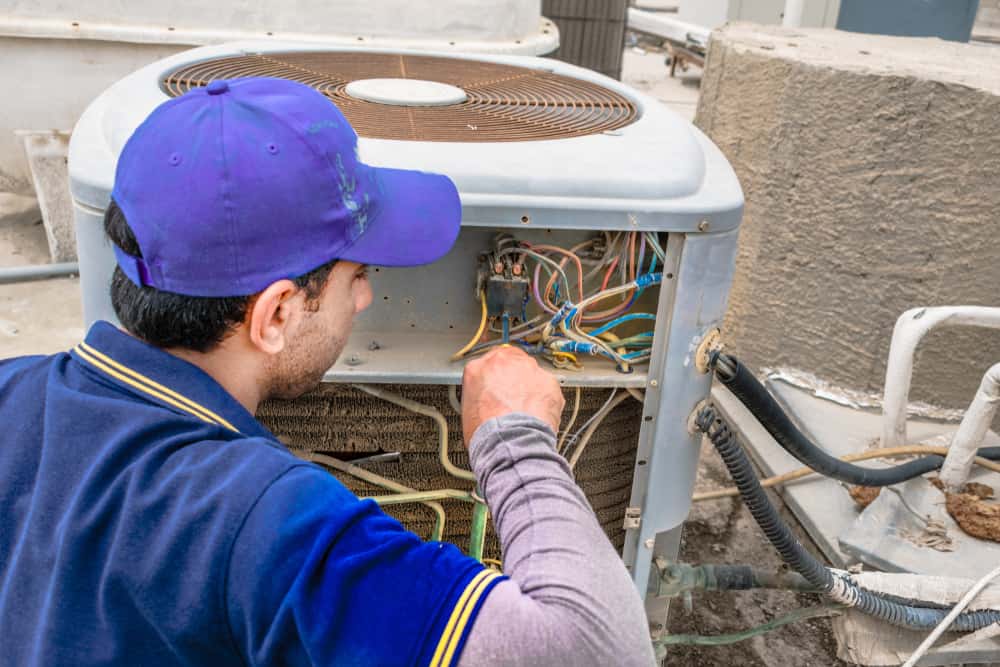An great night's sleep is essential for general health and wellness, yet a lot of people struggle to achieve it. One frequently neglected factor that can considerably impact sleep quality is the setting in which we relax, particularly the heating, ventilation, and air conditioning (HVAC) systems in our houses. Understanding how HVAC systems function and the manner they contribute to a comfortable sleeping environment can help you improve your sleep quality and daily performance.
In this article, we will discuss the different aspects of HVAC systems and their immediate influence on sleep. From keeping optimal temperature and moisture levels to ensuring fresh indoor air quality, the role of HVAC is crucial not just for relaxation but for health as well. We will provide information into common HVAC challenges, maintenance tips, and innovative solutions that can help create a sleep sanctuary designed to your needs. By the end, you will acquire the knowledge needed to make wise decisions about your HVAC system, boosting your sleep quality for a healthier, more refreshing experience each night.
Grasping HVAC Systems
HVAC stands for Heat, Air Exchange, and Cooling, which are the three key components that operate collectively to ensure comfort in home and business spaces. Heaters are responsible for providing heat during colder months, while air conditioning units cool the air when it gets hot. Air circulation ensures that fresh air circulates across the space, filtering out harmful particles and keeping the air fresh. Understanding how these systems work is crucial for making informed decisions about caring for and improving home comfort.
The core function of an HVAC system revolves around its various components, including the heater, air conditioner, thermal pump, and ductwork. The furnace or heat source generates heat that is distributed through ducts or heaters, while the cooling unit lowers the temperature of and removes moisture from the air. Efficient airflow is ensured through well-placed vents and fans, ensuring that every corner of a house is provided with the necessary conditioning. Understanding of how these parts work together helps in improving their performance and energy-saving capabilities.
Common HVAC problems can arise from lack of maintenance, outdated technology, or poor sizing of the system for the space. These issues can manifest in inconsistent temperatures, rising energy bills, or a malfunctioning system. Routine maintenance, such as filter replacements and regular tune-ups, can prevent many of these problems and prolong the lifespan of the system. By comprehending HVAC systems and their typical issues, homeowners can make better choices in fixes or replacements, ensuring a comfortable living environment all year long.
HVAC Maintenance and Efficiency
Regular Heating, Ventilation, and Air Conditioning maintenance is crucial for ensuring the system operates efficiently and efficiently. Filtered filters, for example, allow better airflow, allowing the system to achieve a set temperature with less power consumption. Ignoring maintenance can lead to higher energy bills and a reduction in performance, as dust and grime accumulate within the system. Setting up routine inspections not only helps catch possible issues in advance but also prolongs the durability of the HVAC equipment.
Another important factor of HVAC efficiency is the fine-tuning of thermostat settings. It's crucial to establish a compromise that ensures convenience while also minimizing energy use. For air conditioning service , setting the thermostat a few degrees Fahrenheit higher in the summer and a slightly lower in the winter can lead to considerable savings over time. Numerous modern systems provide smart thermostats that adjust automatically, ensuring peak efficiency based on your routine and needs.
To wrap up, keeping the space around the HVAC system clear and unblocked aids in effective operation. This enables for enhanced airflow and prevents overheating or stress on the system. Frequently checking for gaps in ductwork and verifying proper insulation can additionally enhance energy efficiency. By implementing these simple steps, homeowners can ensure their HVAC systems operate efficiently while helping to reduced energy costs and enhanced comfort in their living spaces.
HVAC's Impact on Indoor Air Quality

The quality of interior air is vital for preserving a healthy living environment, and HVAC systems play a critical role in this regard. By effectively controlling temperature and humidity, HVAC systems help to minimize the proliferation of mildew, allergens, and other pollutants that can impact air standards. Additionally, suitable ventilation offered by these systems secures that clean outdoor air circulates inside, reducing the concentration of indoor contaminants and offering a more comfortable atmosphere.
To improve interior air quality, picking the appropriate air screening for your HVAC system is essential. High-efficiency particulate air (HEPA) filters can trap a significant amount of floating particles, such as dirt, flower dust, and animal fur. Consistently changing these filters, as part of HVAC care, helps maintain prime performance and guarantees that the air flowing in your home is pure and safe. Furthermore, some modern HVAC systems come equipped with sophisticated filtration systems that can further boost air purity by clearing fumes and dangerous particles.
Moisture control is another key function of HVAC systems that immediately influences interior air standards. Suitable humidity levels help prevent the development of germs and microbes, which flourish in excessively humid environments. Implementing a humidity control device or confirming your HVAC system has humidity regulation features can significantly enhance your home's air purity, making the habitat space not only more pleasant but also safer. Keeping humidity in check contributes to improved respiratory health and reduces allergy symptoms, leading to improved overall well-being for occupants.
